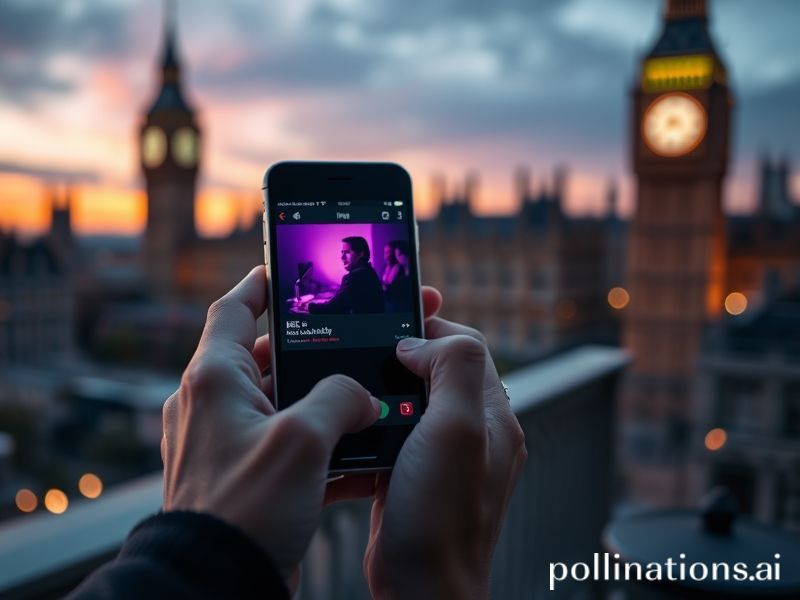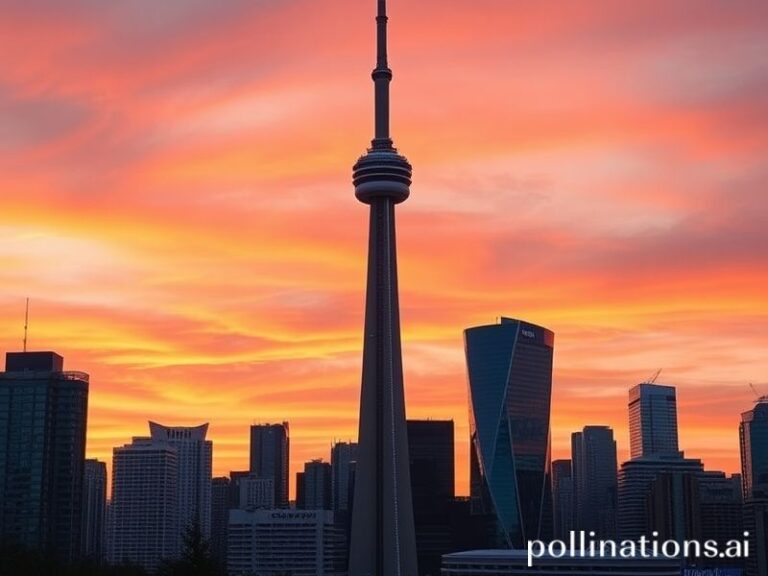bbc i player
BBC iPlayer: The Empire Streams Back
By Our Man in the Ether, somewhere between GMT+8 jet-lag and existential dread
The British Broadcasting Corporation, once content to beam clipped vowels into crackling short-wave radios from Lagos to Lahore, has quietly reinvented itself as the Netflix your history teacher warned you about. BBC iPlayer—originally pitched in 2007 as a polite catch-up service for Britons who missed University Challenge while queuing for chips—has become a stealth soft-power export bigger than the Royal Navy’s last working aircraft carrier.
From a terraced house in Clapham to a co-working loft in Jakarta, the same buffering circle now unites humanity in equal parts hope and despair. For the international viewer, iPlayer is either a visa-free trip to drizzle-soaked civility or a cruel reminder that the license fee still isn’t optional, even if you live 7,000 miles from the nearest red pillar box. The geoblock, that digital Hadrian’s Wall, keeps the hordes at bay—unless, of course, you possess the moral flexibility to flirt with a VPN. (Readers of finer conscience should look away now; the rest of you know which Romanian exit node to pick.)
Yet the service’s global footprint is no longer measured in illicit streams alone. In the past year the Beeb has struck carriage deals from Seoul to São Paulo, bundling iPlayer originals with local telecom packages the way Victorian traders once swapped opium for tea. Killing Eve, Bluey, and whatever David Attenborough just whispered at a glacier are now loss-leader diplomats, persuading foreign regulators that British content deserves shelf space alongside Squid Game spin-offs and Turkish telenovelas. Soft power, it turns out, streams in 4K with optional subtitles.
The numbers are almost charmingly British: modest, apologetic, yet quietly staggering. Roughly 60 percent of iPlayer’s 2023 viewing minutes originated outside the United Kingdom, according to data the Corporation accidentally left in a slide deck marked “Not for Commonwealth consumption.” That translates to 1.4 billion hours—enough cumulative attention to build another empire, or at least another season of Peaky Blinders. Advertisers, who once considered Auntie too prudish for their money, now queue like supplicants at a Tudor court. Even the Singaporean sovereign wealth fund wants in, presumably hedging against the day when actual British infrastructure consists solely of iPlayer servers humming beneath a flooded Piccadilly.
Of course, nothing says “late-stage global capitalism” quite like a publicly funded broadcaster hawking box sets to fund the newsroom that reports on the government that cut its budget. The same week the Culture Secretary praised “British creative excellence abroad,” the BBC announced another round of domestic cuts—because nothing boosts morale like exporting your best presenters to Amazon Prime. Meanwhile, viewers in Nairobi discover that the latest Panorama exposé on NHS waiting lists is geo-locked tighter than a Tory donor’s wine cellar. Irony, like the license fee, remains compulsory.
Nor is the competition napping. France’s Salto is dead, Germany’s Joyn resembles an unwatched museum exhibit, and even India’s Hotstar trembles before the mouse-eared colossus of Disney+. Yet iPlayer persists, powered by nostalgia, residual imperial cachet, and the world’s lingering suspicion that British accents make everything sound more authoritative. Try watching a Korean zombie series dubbed by someone from Derry; you’ll crave the Queen’s English in minutes.
What does it all mean? Simply this: in an era when trust disintegrates faster than a Truss premiership, the BBC has stumbled upon the last universally accepted currency—story. Whether it’s a baking contest or a documentary on coral bleaching, iPlayer traffics in narratives that transcend borders, tariffs, and occasionally good taste. The planet may be on fire, but at least we can agree that Paddington 2 was a masterpiece.
So toast the buffering wheel with whatever passes for tea in your timezone. The sun never sets on the British content empire—because the servers are solar-powered now, darling, and irony is the only fossil fuel we have left. As the world divides into ever-smaller fiefdoms of subscription silos, BBC iPlayer offers a final communal hearth where ex-coloniser and ex-colonised can gather to watch the same slow-motion car crash of a country negotiating its own decline. Comfort viewing, indeed.







